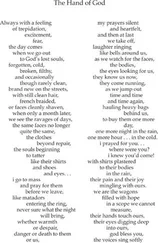Danielle Steel - Crossings
Здесь есть возможность читать онлайн «Danielle Steel - Crossings» весь текст электронной книги совершенно бесплатно (целиком полную версию без сокращений). В некоторых случаях можно слушать аудио, скачать через торрент в формате fb2 и присутствует краткое содержание. Год выпуска: 1987, ISBN: 1987, Издательство: Random House, Inc., Жанр: Старинная литература, на английском языке. Описание произведения, (предисловие) а так же отзывы посетителей доступны на портале библиотеки ЛибКат.
- Название:Crossings
- Автор:
- Издательство:Random House, Inc.
- Жанр:
- Год:1987
- ISBN:9780440115854
- Рейтинг книги:3 / 5. Голосов: 1
-
Избранное:Добавить в избранное
- Отзывы:
-
Ваша оценка:
- 60
- 1
- 2
- 3
- 4
- 5
Crossings: краткое содержание, описание и аннотация
Предлагаем к чтению аннотацию, описание, краткое содержание или предисловие (зависит от того, что написал сам автор книги «Crossings»). Если вы не нашли необходимую информацию о книге — напишите в комментариях, мы постараемся отыскать её.
Crossings — читать онлайн бесплатно полную книгу (весь текст) целиком
Ниже представлен текст книги, разбитый по страницам. Система сохранения места последней прочитанной страницы, позволяет с удобством читать онлайн бесплатно книгу «Crossings», без необходимости каждый раз заново искать на чём Вы остановились. Поставьте закладку, и сможете в любой момент перейти на страницу, на которой закончили чтение.
Интервал:
Закладка:
Armand's letters were infrequent and brief, brought out by members of the Resistance now, and left unsigned. They reached her through intricate, elaborate underground routes, eventually reaching London or some British port, and sent to the States on freighters or troop ships or whatever was coming across. There were odd gaps in the letters also at times, and she wondered always if the messengers had been killed or the troop ships sunk. There was no way to know. But what she did know, or sensed, was that Armand was in constant danger now. He was so high up in the ranks, that were his treason to Pétain and the Nazis known, he would have been killed at once.… We are very busy now, my love. We have been salvaging treasures as well as lives, spiriting pieces from the Louvre and having them disappear into barns and sheds and haystacks all over France before they can be shipped to Berlin. It may take us a lifetime to retrieve them again, covered with hay and goose manure, but it is one thing less for them to steal from us … even one tiny piece of history remaining ours is a victory for our side … that and the people who have managed to disappear, in order that their lives be saved. Knowing that we have done this, saved even one life, makes it bearable to be without your gentle touch, your love, your smile …
The letters tore at her heart now, and made her wonder again if what he was doing was worth the risk. One painting, one statue … one piece of history … and all of that perhaps in exchange for his life? Could he really think it worth the risk? And yet she sensed in his letters the same devoted passion he had always had for France. His country was truly his first love, above all else. He had served her well all over the world, and now he was saving her from those who would leave her bleeding and dead, squeezed dry and lying by the roadside.
Liane admired the principles behind Armand's work, and yet now as she began to see their daughters shunned by their friends, she once again questioned the wisdom of what he had done. Better to have gone to North Africa or London with De Gaulle, to fight there, to work with the Free French openly, than to remain in France to undermine the Nazis at every turn, but earn no glory at all, wearing the banner of Pétain. She knew that there was far more important work he did than saving the artwork of France, yet she also knew that just as he had been forced into secrecy in the year before Paris fell, now it was even more important that he share none of that with her, lest it risk other lives and his as well, so she had almost no way of knowing what agonies he really suffered, what risks he ran.
And at his desk in Paris, with the swastika spread across the wall, Armand would look out at the Paris sky, remembering Liane's touch, her face, the sunshine in her voice, the way she had looked at nineteen and twenty-one, and then he would force her from his head and go back to his work. He had grown deathly thin since she had left France, from overwork, from lack of sleep, from strain. He had developed a nervous tic in one eye, but other than that he always appeared steadfastly calm. He appeared to believe in the Vichy cause, and by November of 1940 he was carrying an important load of trust, placed on him by both sides. His only fear was the knowledge that time wasn't on his side. He had aged fifteen years in the last two, and the mirror didn't lie to him. He was approaching fifty-eight, and felt more like ninety-five. But if he could give his last days to France, and serve her well, he knew that he would die with honor on his side. And he felt sure that Liane knew it too. He hinted at that to her in letters once or twice— “Si je meurs pour ma patrie, mon amour, je meurs en paix” —If I die for my country, I die in peace. But the words made her hands tremble each time she read something like that. Losing Armand was not what she had in mind. But at other times there were anecdotes, or reports of funny things they'd done, an artistry of confusion committed by the comrades of the Resistance. She marveled now and then about the things the Resistance did, and the tales that Armand dared to tell. She marveled too that the Nazis rarely found them out. But “rarely” still made it a dangerous game. There were constant close calls, far more than she knew.
In November there was one that almost cost Armand his life. He was delivering a series of important papers he had copied in minute detail, carried taped to his chest, and he had been stopped by the police on his way out of town. He explained that he was going to visit an old friend, and had rapidly shown the documents, which proved him a henchman of Pétain. The German officers had hesitated for a time, and then waved him on. The papers had been delivered into the right hands, and he had returned that night, almost limp with fatigue, but he returned to the house he and Liane had shared, and he sat down slowly on the bed, aware of just how close he'd come, and that the next time might be his last. But even as he looked at her empty side of the bed, he had no doubts. He never had. “Qa vaut la peine, Liane … ca vaut bien la peine … pour nous, pour la France,” he said aloud. It's worth the pain … well worth the pain … for us … for France….
But that was not a sentiment shared by Liane as the doorbell rang in the Georgetown house on a Friday afternoon. The girls had been due home from school half an hour before. And she had glanced at her watch several times. Marcie, the maid, had told her to calm down, but there was no calming her once she saw the girls. They had walked home alone, as they often did, but as they stood now on the front steps, their dresses in rags, with red paint in their hair and ravaged looks on their faces, Liane gasped and began to shake as she led them inside. Elisabeth was trembling from head to foot and hiccuping through her sobs, but Liane could see that there was more than grief to Marie-Ange's tears, there was also fury.
“My God … what happened?” She was about to lead them into the kitchen, where she was going to peel their clothes from their backs, but she stopped as though she had been slapped when she turned Marie-Ange around. There on her back, in a broad slash of red paint, was a swastika. And without a word she turned Elisabeth around too and saw another one there. And choking on her own sobs, she clutched them to her, their painted little bodies smearing red all over her, and the three of them stood in the kitchen like that as Marcie watched with tears pouring down her own withered black cheeks.
“Oh, my babies … what they done to ya?” She pulled them slowly free of Liane and began to take off their dresses, but the girls were crying harder now and Liane had to fight to regain control. She was crying not just for them, but for herself, and France, and Armand, and what the horrors there had done to them all. There was no turning back now. And she knew too that there was also no staying. She couldn't go on exposing the girls to that. They had to leave. They had no choice now.
Liane walked them quietly into their bathroom and ran a warm bath. Then she tenderly bathed both of them. Half an hour later they looked like the same little girls they had always been, but she knew they weren't, and would never be quite the same again. She threw away the ravaged dresses, her brow furrowed in anger and fear.
She brought them dinner in their room, and they sat and talked for a long time. Elisabeth looked at her as though her entire childhood had melted in one afternoon. At eight she knew more than most children at twice that age, she knew pain and loss and betrayal.
“They said Papa was a Nazi … Mrs. Muldock told Mrs. McQueen and she told Annie … but Papa isn't a Nazi! He's not! He's not!” And then, with a look of sorrow, she asked Marie-Ange and Liane, “What's a Nazi?”
Читать дальшеИнтервал:
Закладка:
Похожие книги на «Crossings»
Представляем Вашему вниманию похожие книги на «Crossings» списком для выбора. Мы отобрали схожую по названию и смыслу литературу в надежде предоставить читателям больше вариантов отыскать новые, интересные, ещё непрочитанные произведения.
Обсуждение, отзывы о книге «Crossings» и просто собственные мнения читателей. Оставьте ваши комментарии, напишите, что Вы думаете о произведении, его смысле или главных героях. Укажите что конкретно понравилось, а что нет, и почему Вы так считаете.










